Interview: SOFT POWER's Francis Jue On Representing David Henry Hwang & Fellow Asian-Americans
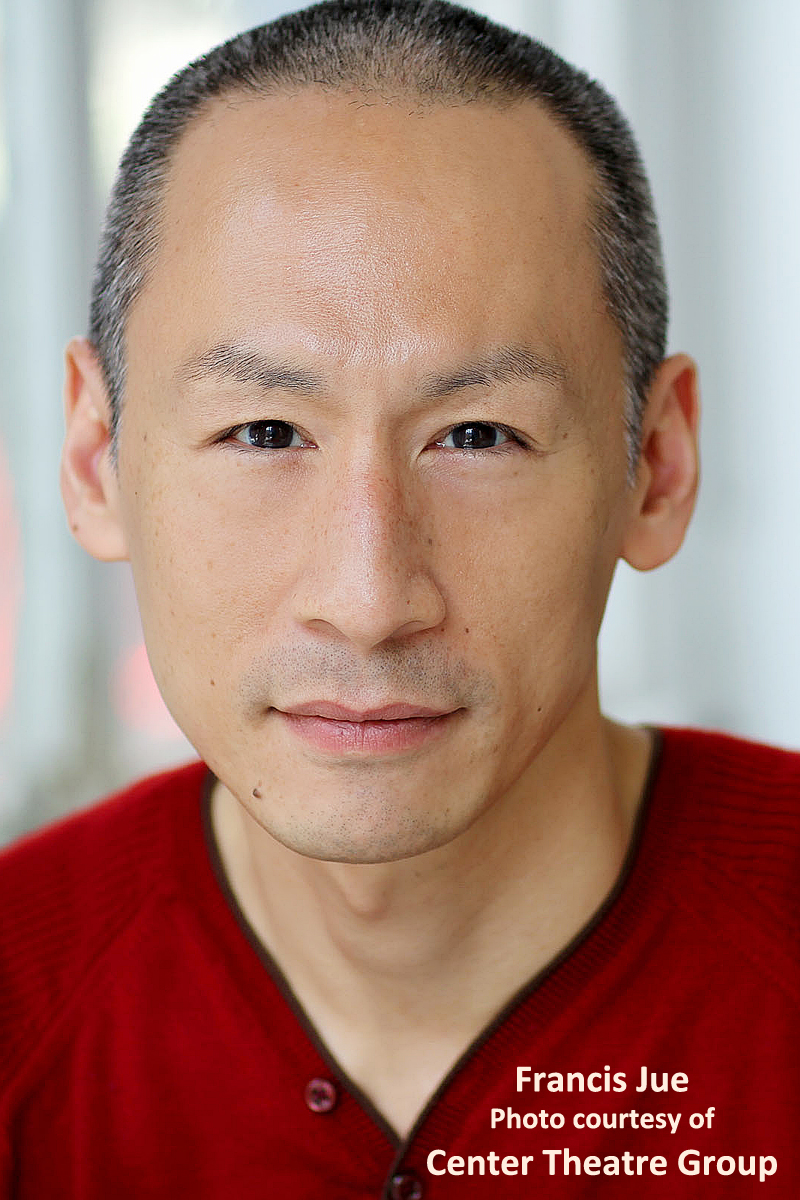
SOFT POWER, the first collective creation of Tony Award winners David Henry Hwang and Jeanine Tesori, will world premiere at the Ahmanson under the auspices of Center Theatre Group, in association with East West Players and the Curran, opening May 16, 2018. A look back from the future, SOFT POWER rewinds our current political events and presents it through the eyes of a visiting Chinese executive.
We had the wonderful opportunity to chat with a frequent collaborator of both David Henry Hwang and Jeanine Tesori, actor/singer Francis Jue who portrays DHH in SOFT POWER.
Thank you for taking time out for this interview, Francis.
You are playing the role of DHH, a writer in SOFT POWER. You have a long history of shows with David Henry Hwang over the years. So how close is the character of DHH to the David that you know?
SOFT POWER draws on some real events in David's life. But the DHH I play is a fictional character. I haven't told David, but I suspect that DHH is the id version of David's ego, the uncensored child that we all nurse inside the adult we present to the outside world.
Would you say it's to your advantage to know the person your character's based on, as opposed having a blank canvas to create on?
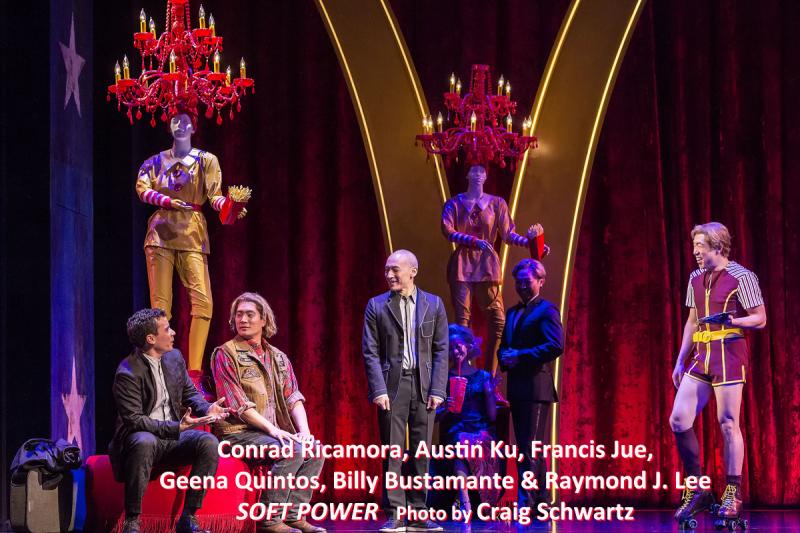 Oh, it's so much pressure! Especially when David's there at rehearsal! I've played a lot of real people in my career -- Mozart, Bernie Jacobs, David's father, etc. But I remind myself it's a play, not a biography. We're telling a story, and so I try to do as much research as will tell me why the playwright chose this person for this story. I try to get at the essence, the distillation of each character's needs and secrets, whether they're based on real people or not.
Oh, it's so much pressure! Especially when David's there at rehearsal! I've played a lot of real people in my career -- Mozart, Bernie Jacobs, David's father, etc. But I remind myself it's a play, not a biography. We're telling a story, and so I try to do as much research as will tell me why the playwright chose this person for this story. I try to get at the essence, the distillation of each character's needs and secrets, whether they're based on real people or not.
How cool is it to you to play David's father and, then ten years later, David?
Seriously, I'm so grateful that David has trusted me with some of his work, which is so deeply personal.
How would you compare and contrast the characters of father in YELLOW FACE to son in SOFT POWER?
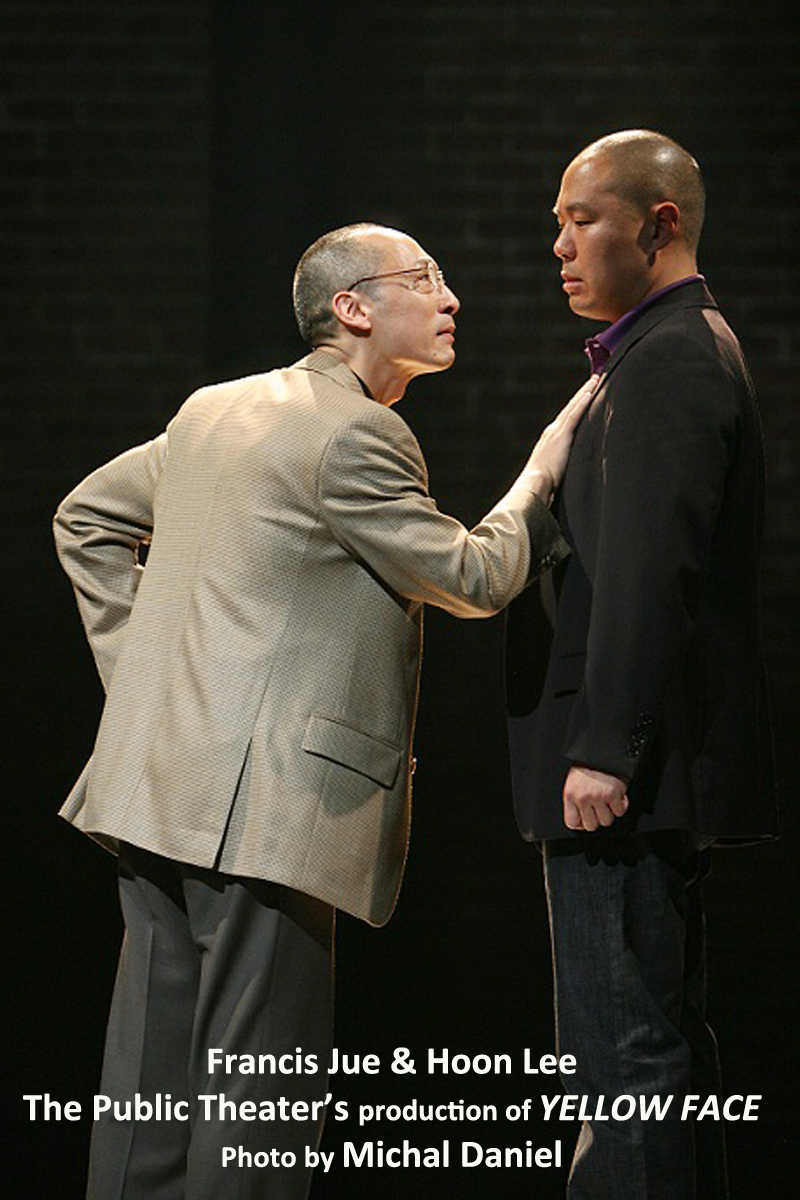 I aspire to the way David imbued his father's character with such optimism and faith. And I love the way David skewers himself most of all, even while writing about really serious stuff.
I aspire to the way David imbued his father's character with such optimism and faith. And I love the way David skewers himself most of all, even while writing about really serious stuff.
Did you get the chance to meet and get to know David's father Henry before you portrayed him in YELLOW FACE?
No, I never got to meet David's father. The one note I remember David giving me about his Dad was to stand up straight. It's the perfect kind of note for me, because I could extrapolate from that so many things about Henry's relationship to the world, to himself, to his son. When I finally met David's Mom, she told me I looked nothing like Henry, but that I had captured who he was.
As an Asian-American actor, do you feel you have to "represent" today as much as you did when you were one of the few Asian-American actors working in the 1980s?
Always! I have always thought of acting as service - to the script, to the compact with the audience, to my own evolution. But I am acutely aware that Asians are often seen as symbols of a foreign culture, rather than just human beings on stage. When I go to see THE CRUCIBLE, I don't conclude that all white people are rabid witch hunters. Whether I'm playing a hero or a villain or a clown or something in between, I am aware that I have the extra burden of proving my shared humanity.
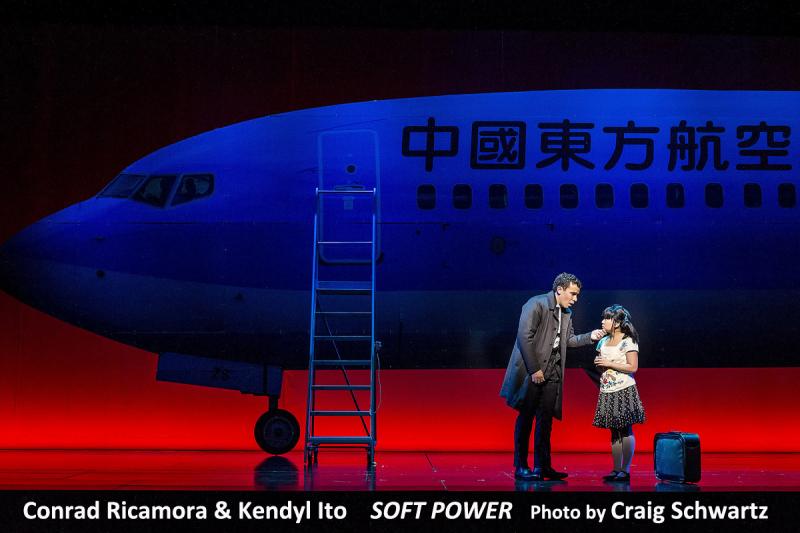 I think the first positive Asian faces I saw on the big screen were James Shigeta and Nancy Kwan in Flower Drum Song. And then, of course, the phenomenal Bruce Lee who broke the unflattering Asian male stereotype. Who were the Asian-American actors you looked up to?
I think the first positive Asian faces I saw on the big screen were James Shigeta and Nancy Kwan in Flower Drum Song. And then, of course, the phenomenal Bruce Lee who broke the unflattering Asian male stereotype. Who were the Asian-American actors you looked up to?
I have been inspired by so many performances - Mako in PACIFIC OVERTURES, Jack Soo on Barney Miller, Mieko Harada in RAN, Joan Chen in The Last Emperor, and more. But my real role models have been working actors I've been lucky enough to meet - Tom Ikeda, James Saito, Sala Iwamatsu, Jade Wu, too many to name. Their specificity, their integrity, their senses of humor, their humility, have all guided me.
Viewing the film Flower Drum Song as a youngster, I didn't see/take any offense at the time. David has reworked it, as well as his M. BUTTERFLY. What was your take on the original Flower Drum Song when you saw it?
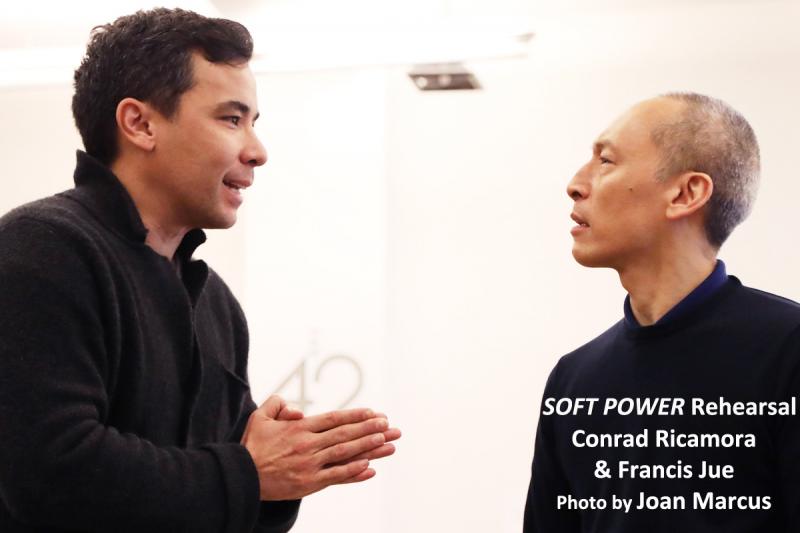 As a child, I remember thinking it was a bit clunky - even then, I had a critical mind for storytelling. But I really loved that there were Asian-Americans in a movie musical, with the same kind of style as a lot of other musicals - wise-cracking supporting characters, lovely leads, fierce dancing, a happy ending.
As a child, I remember thinking it was a bit clunky - even then, I had a critical mind for storytelling. But I really loved that there were Asian-Americans in a movie musical, with the same kind of style as a lot of other musicals - wise-cracking supporting characters, lovely leads, fierce dancing, a happy ending.
The only issue I questioned in the mesmerizing M. BUTTERFLY was how Rene Gallimard didn't know the gender of the person he was sexually involved with. But I was able to make sense of it using traditional Chinese modesty as the reason. David has addressed that issue in his reworking of it last year. As one who's played Song Liling, how did you initially justify Gallimard's not knowing of Song Liling's sex? Denial? Or just unspoken?
I totally buy that Gallimard didn't know Song's gender, in the play and in life. And not because of Chinese modesty, but because of toxic western masculinity. It's the racist and sexist perception that creates the fantasy, not the person being objectified. Gallimard is fooled by his own racist and sexist assumptions, which are manipulated by Song, who eventually luxuriates in them as well. It's a double tragedy.
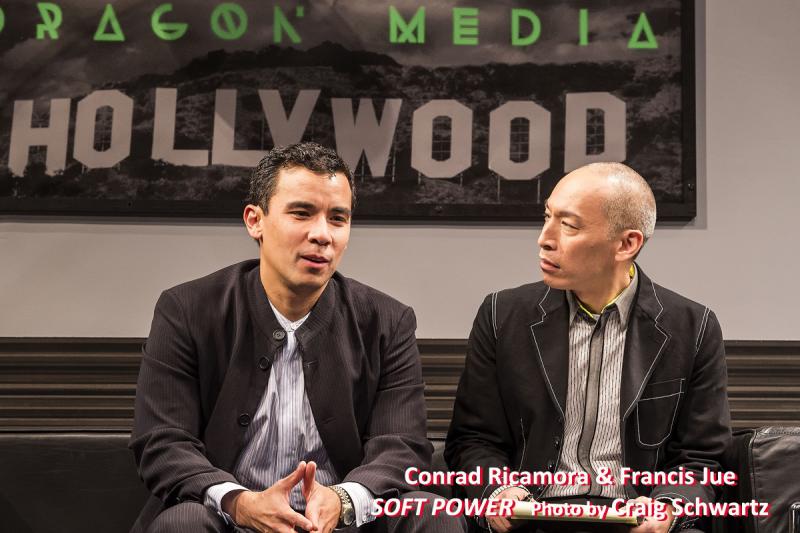 Would you now today prefer to play the revised 2017 version of Song Liling? Or the original 1988 version?
Would you now today prefer to play the revised 2017 version of Song Liling? Or the original 1988 version?
I grew up with the original script of M. BUTTERFLY. I'm not familiar enough with the newer draft to know what I'd prefer.
SOFT POWER utilizes the future-looking-back-to-2016 perspective to mine a fresh view of our present time. If you had that ability to go back in time yourself, any specific choices you would have made differently in regards to your theatrical career?
I wasted so much time and energy not trusting myself. Then again, torturing myself all these years has also motivated me to study and work hard. Through the years, I began to feel that my opinion matters, at least as much as anyone else's. And now I have come to realize that no one knows anything, and we're all muddling through together.
Would you have interpreted Bun Foo differently (the role you created back in 2002 in Jeanine Tesori's original Broadway production of THOROUGHLY MODERN MILLIE)?
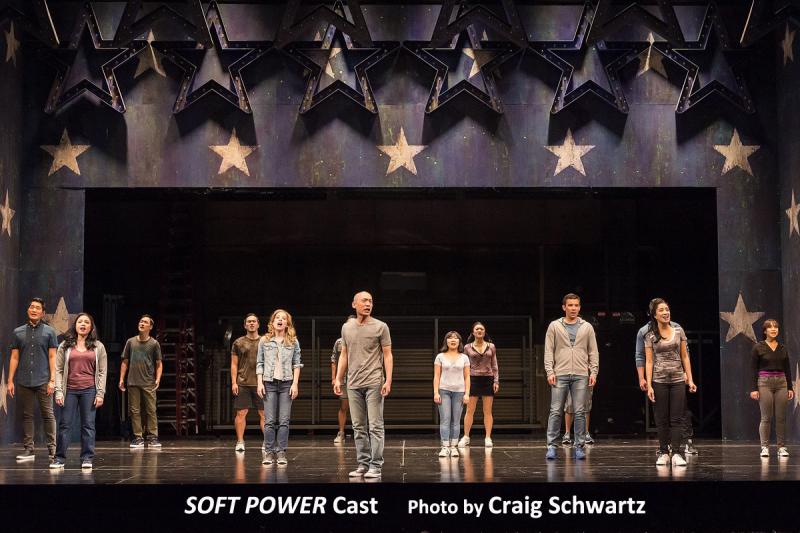 Working on MILLIE taught me that I have one job, and that is, to mean what I mean, and know that I can't control how anyone receives it. I know that I was telling an aspirational story that paralleled Millie's, and Miss Dorothy's, and Muzzy's, and Jimmy's. My Bun Foo had dignity, and American chutzpah. I only wish my Cantonese was better.
Working on MILLIE taught me that I have one job, and that is, to mean what I mean, and know that I can't control how anyone receives it. I know that I was telling an aspirational story that paralleled Millie's, and Miss Dorothy's, and Muzzy's, and Jimmy's. My Bun Foo had dignity, and American chutzpah. I only wish my Cantonese was better.
Besides David and Jeanine, who else on SOFT POWER have you worked with before?
Our brilliant director Leigh Silverman and I have collaborated on several things - YELLOW FACE, CORALINE, KUNG FU, WILD GOOSE DREAMS, among others. Michael Ritchie and Kelly Kirkpatrick at Center Theatre Group produced KING OF THE YEES, which I appeared in just last year. Our stage manager David Lurie-Perret, and designers David Zinn and Anita Yavich, have worked together on several shows with me. And I've been lucky enough to have worked with more than half of our ensemble before. This show feels like family.
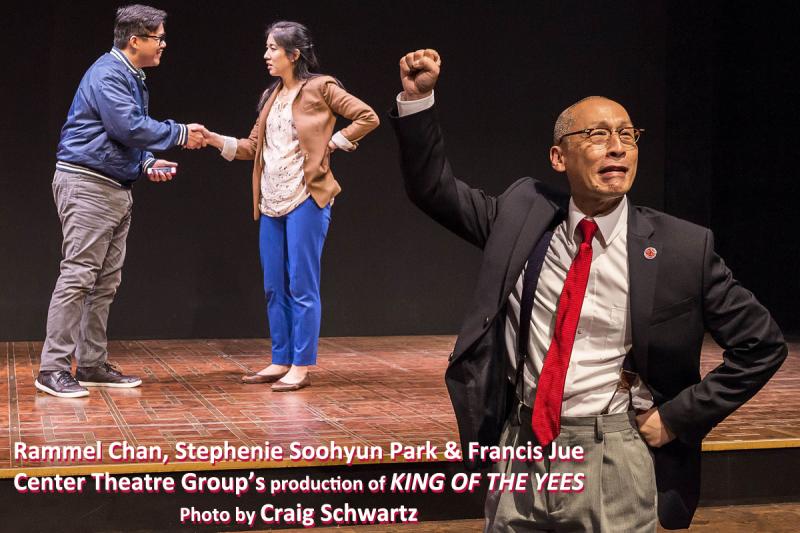 As part of the creative team of this world premiere, what message or feeling would you like the Ahmanson and the Curran audiences to leave with after your curtain calls?
As part of the creative team of this world premiere, what message or feeling would you like the Ahmanson and the Curran audiences to leave with after your curtain calls?
By the end of the show, what runs through my head is, "There is still love, there is still love, there is still love ..."
Thank you again, Francis! I look forward to seeing your latest collaboration with David and Jeanine!
For ticket availability and schedule at the Ahmanson through June 10, 2018; www.centertheatregroup.org
For tickets and schedule at the San Francisco Curran from June 20 through July 8, 2018; log onto www.sfcurran.com
Comments

Videos
